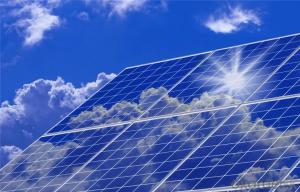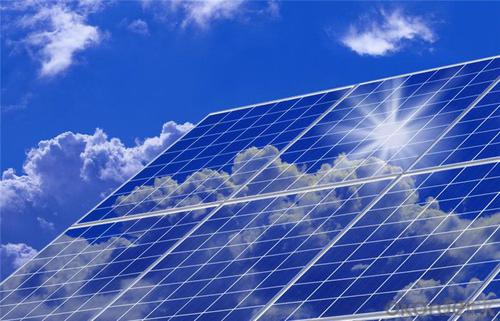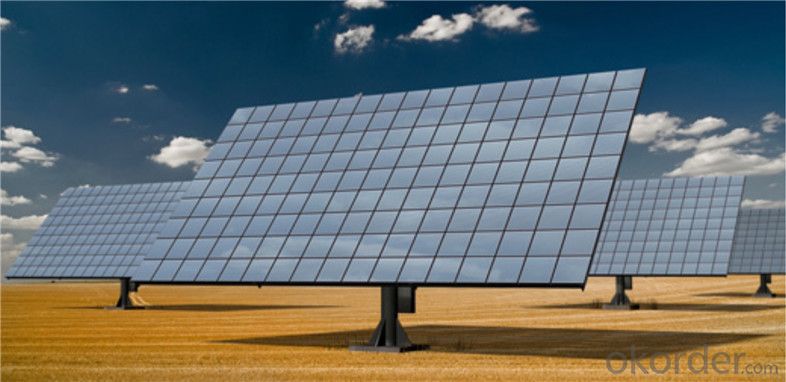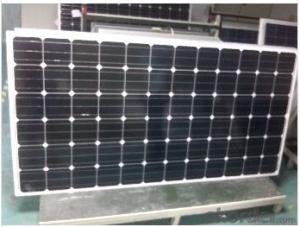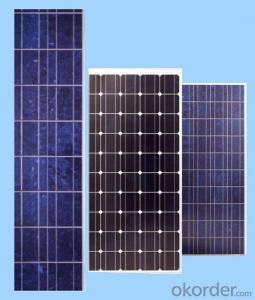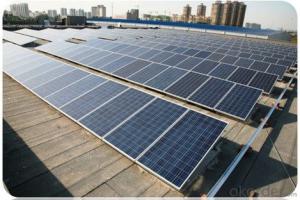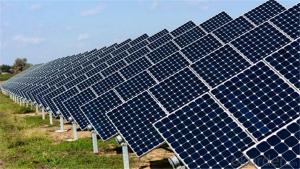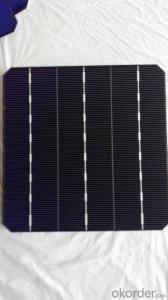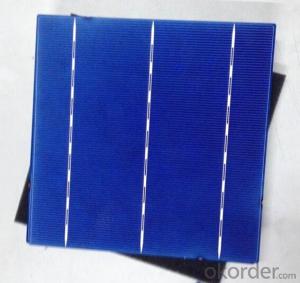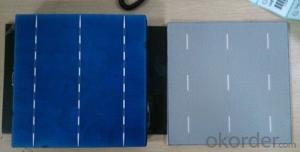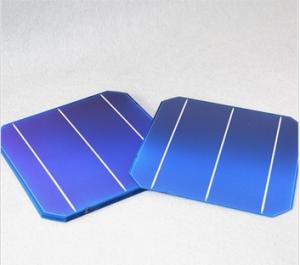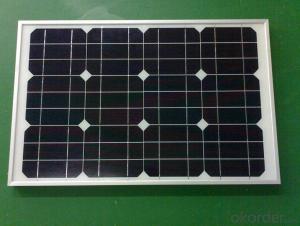Polycrystalline 156mm Solar Cells Photovoltaic Product Purchase - Solar Panels Austin TX
- Loading Port:
- Shanghai
- Payment Terms:
- TT OR LC
- Min Order Qty:
- 2500 watt
- Supply Capability:
- 10000000 watt/month
OKorder Service Pledge
OKorder Financial Service
You Might Also Like
Specification
Solar Module Summarize
Solar Module is the core part of solar PV power systems, also is the highest value part of it. The function of Solar Module is to convert the sun's radiation to electrical energy, or transfer it to battery and store in it, or to drive the load running.
The Product has been widely used in space and ground, it mainly used for power generation systems, charging systems, road lighting and traffic signs areas. It could offer a wide range of power and voltage, and with high conversion efficiency, and long service life.
Technical Parameter:
Model Type | Good Quality 250W Solar Panel |
Peak Power-Pmax(W) | 250W |
Open Circuit Voltage-Voc(V) | 44.2 |
Maximum Power Voltage-Vmp(V) | 36 |
Short Circuit Current-Isc(A) | 5.4 |
Maximum Power Current-Imp(A) | 5 |
Maximum System Voltage | 1000V DC |
Maximum Series Fuse Rating | 10A |
Power Tolerance | -1~+3% |
Temperature Coefficients of Pmax | -0.45%/℃ |
Temperature Coefficients of Voc | -0.348%/℃ |
Temperature Coefficients of Isc | 0.031%/℃ |
Nominal Operating Cell Temperature | 44.5±2℃ |
Standard Testing Condition(STC) | Irradiance:1000W/m²;Temperature:25℃;AM=1.5 |
Qualification Test Parameters | |
Operating Temperature | -40℃~+85℃ |
Storage Temperature | -40℃~+85℃ |
Pressure Bearing | ≥5400Pascal/m² |
Wind Bearing | ≥5400Pascal/m² |
Mechanical Characteristics | |
Cell Size | Poly 156*156mm±0.5 |
No.of Cells | 60pcs(6*10) |
Dimension | 1640*992*40mm |
Weight | 18.8Kg |
Glass | 3.2mm High Transmission,Low Iron |
Frame | Anodized Aluminum Alloy |
Junction Box | IP65Rated |
Internal Diodes | 3 Bypass Diodes |
Cable | 1*4.0mm² Length 900mm |
Product Show:
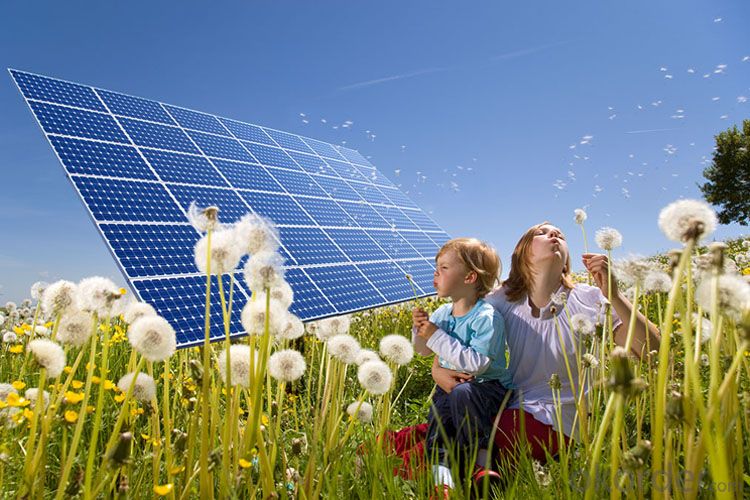
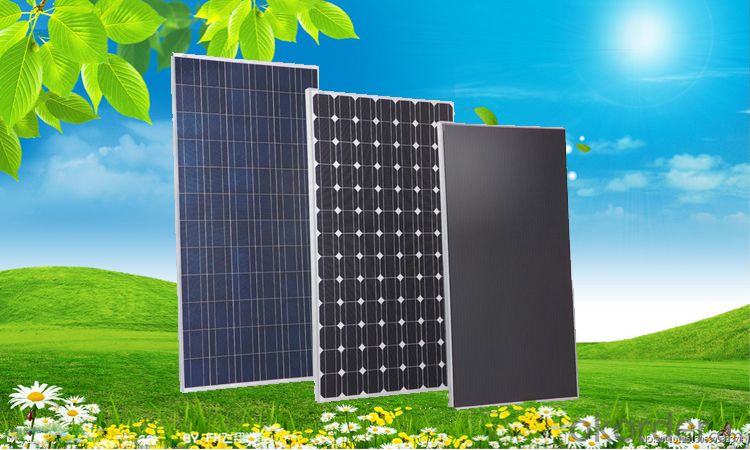
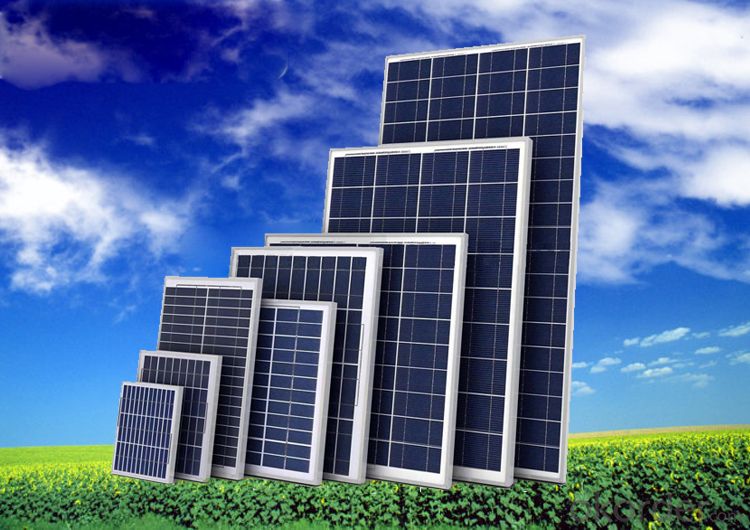
Packing & Shipping:
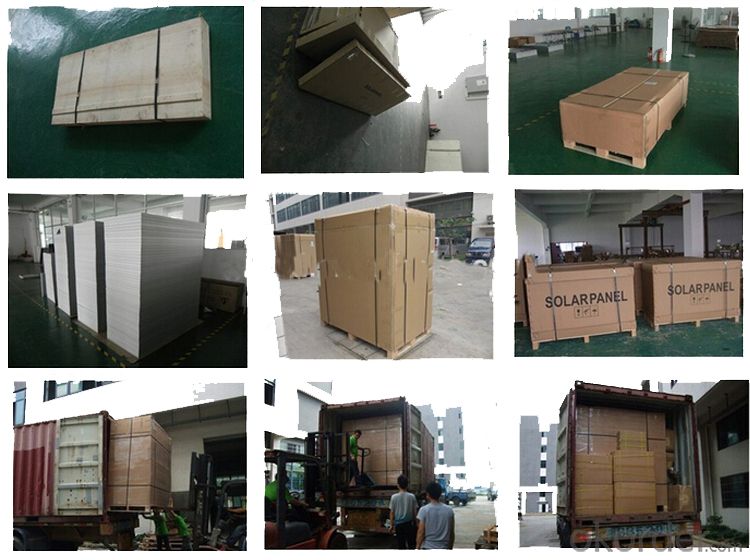
We have rich experience on how to pack the panels to make sure the safety on shipment when it arrives at the destination.
The normal size is packed by 25pcs/ carton / pallet. Paper carton for FCL shipping and wood carton for LCL shipping.
Company Description
CNBM International Corporation, as an important external business platform of CNBM Group, plays as a role to export solar products produced by CNBM. Headquartered in Beijing, We have entered into Solar PV industry since 2005. CNBM Solar is specialized in PV power systems which takes advantage of reliable supplying, convenient installation and free maintenance, and has been used widely, and it is the compensation and substitution of normal power supply. We provide power solutions for home, business and industrial customers, and provide off-grid PV systems for rural area. Our company not only can supply high quality solar Products, but also provides professional system Solutions and high quality services.
FAQ:
(1)What price for each watt?
It depends on the quantity, delivery date and payment terms.
(2)What is your size for each module? Can you tell me the Parameter of your module?
We have different series of panels in different output, both c-Si and a-Si. Please take the specification sheet for your reference.
(3)Can you provide the peripheral products of the solar panels, such as the battery, controller, and inverter? If so, can you tell me how do they match each other?
Actually we are only manufacturer of solar panels, but we could try to source them for you in China if you need. We could provide you an optimal system design to instruct you how to install.
(4)Do you have the CE, TUV, UL Certification?
We’ve already passed all the tests, and any certificate is available.
- Q: I'm about to buy one but I don't really know which one is best for my home.
- Talk okorder has good info. What state are you in?
- Q: Can solar panels be used for powering Wi-Fi networks?
- Yes, solar panels can be used to power Wi-Fi networks. Solar panels generate electricity from sunlight, which can be used to power various devices, including Wi-Fi routers. This allows for the establishment of Wi-Fi networks in remote or off-grid locations where traditional power sources are either unavailable or unreliable. Additionally, solar-powered Wi-Fi networks are environmentally friendly and sustainable, as they utilize renewable energy sources.
- Q: (For a project)I know they are made of silicon, but I want to EVERYTHING they are made of. Ex Metal (What kind)Please tell me everything used from their production to the finished projectThank you
- photograph voltaic panels take power (and in all probability some oil for the plastic) to fabricate, yet that power, and the carbon footprint, is paid for many circumstances over in widespread operation, via the electrical powered energy that the panel generates. The life of the middle photograph voltaic cells is long (there are nonetheless some panels from the 970's that are nonetheless out and dealing), and contemporary panels are oftentimes warranted for 25 years, showing that even the manufacturers have self assurance in thier lifespan. yet whilst it ultimately comes time to eliminate the panels, the aluminum physique is as particularly recycled as the different aluminum, and the tempered, low-iron glass could properly be recycled, too. The plastic substrate is unavoidably solid - it has to stand up to the solar for some years. i do no longer understand what could desire to be achieved with that. The cells themselves are a intense grade of silicon, which has fee on the scrap industry. some panels are no longer made up of silicon - yet lots of the factors could desire to be recycled in a similar fashion. i'm no longer attentive to any intense panels being dumped or discarded at present. they're worth lots, even broken, that some hobbyist or surplus place will purchase them.
- Q: i am starting to consider getting solar panels instead of paying electric bills which are somewhat higher now than they used to be
- Budget okorder /
- Q: I am told there are night vision goggles to see at night due to invisible light still hitting earth. I am also told that there are other beams, x-rays etc hitting earth.Why couldn't they invent a solar panel with dual power in the day?It could harness both visible and invisible light, and at night be single?Anyone know why they can't make an invisible light solar panel?Is this possible?What happens if future cars have night vision windshields instead of lights?
- They are actually working on building photovoltaic panels (Photovoltaic is actually the correct term for sunlight--electricity. Ordinary solar panels are those that use sunlight to heat water) that harness a larger range of wavelengths. From what I can gather the problem is either finding a material that absorbs more wavelengths, or finding a way to get multiple materials to coexist in a single panel. This situation will no doubt improve over time as new things like Nanotechnology give us the ability to create much more complex substances designed at the molecular level for light capture. Panels that can harness a wider range of the spectrum do exist, but the technology is in its infancy, and therefore expensive and not widely known. This isn't too surprising when you consider that Photovoltaic technology itself hasn't been in the mainstream all that long. I am a bit doubtful of photovoltaics that work at night, for the simple reason that at night there is less of *every* kind of energy falling on earth. Less visible light, infrared, etc. Infrared just happens to be particularly good at giving away hot objects, which is how Night Vision goggles work. For the same reason, a night vision windshield might be a very useful tool, but it would still have difficulty picking out colder objects, and those that reflected less infrared light. In other words, you might see cars and pedestrians, but you could easily miss the upcoming embankment 0.o .
- Q: What is the maintenance cost of solar panels?
- The maintenance cost of solar panels is relatively low. Regular cleaning and inspection are recommended to ensure optimal performance, but typically, the cost of maintenance is minimal compared to the savings generated by solar energy.
- Q: Can solar panels be used in developing countries?
- Yes, solar panels can be used in developing countries. In fact, they can be a particularly beneficial source of energy in these regions. Solar panels are cost-effective, environmentally friendly, and can provide reliable electricity to areas with limited access to traditional power grids. Additionally, solar energy can help drive economic growth, improve living conditions, and enhance resilience to climate change in developing countries.
- Q: I riped two solar panels out of some solar light and tested them. I found out that they both produce 2 volts(I have no idea on the watts or amps). Iquot;ve hooked them up to an electric motor that can be driven by a AA battery, but when I hook the solar panels up to them nothing happens. What is wrong?
- Mark G has a good answer. If you leave your voltmeter on the solar cells when you hook up the motor, you will see the voltage drop to near zero. Same thing would happen if you tried to use 2 9 volt batteries to start your car. They just cant maintain the voltage when high curent demands are made.
- Q: How do solar panels generate electricity?
- Solar panels generate electricity through the photovoltaic effect. When sunlight hits the solar cells within the panels, the photons from the sunlight excite the electrons in the cells, causing them to move and create an electric current. This current is then captured and converted into usable electricity for various applications.
- Q: Can solar panels be installed in areas with high levels of saltwater exposure?
- Yes, solar panels can be installed in areas with high levels of saltwater exposure. However, it is important to consider the potential effects of corrosion on the panels and their supporting structures. Proper maintenance and regular cleaning of the panels can help mitigate the impact of saltwater exposure and ensure optimal performance and longevity. Additionally, selecting corrosion-resistant materials and utilizing protective coatings can further enhance the durability of solar panels in such environments.
Send your message to us
Polycrystalline 156mm Solar Cells Photovoltaic Product Purchase - Solar Panels Austin TX
- Loading Port:
- Shanghai
- Payment Terms:
- TT OR LC
- Min Order Qty:
- 2500 watt
- Supply Capability:
- 10000000 watt/month
OKorder Service Pledge
OKorder Financial Service
Similar products
Hot products
Hot Searches
Related keywords
